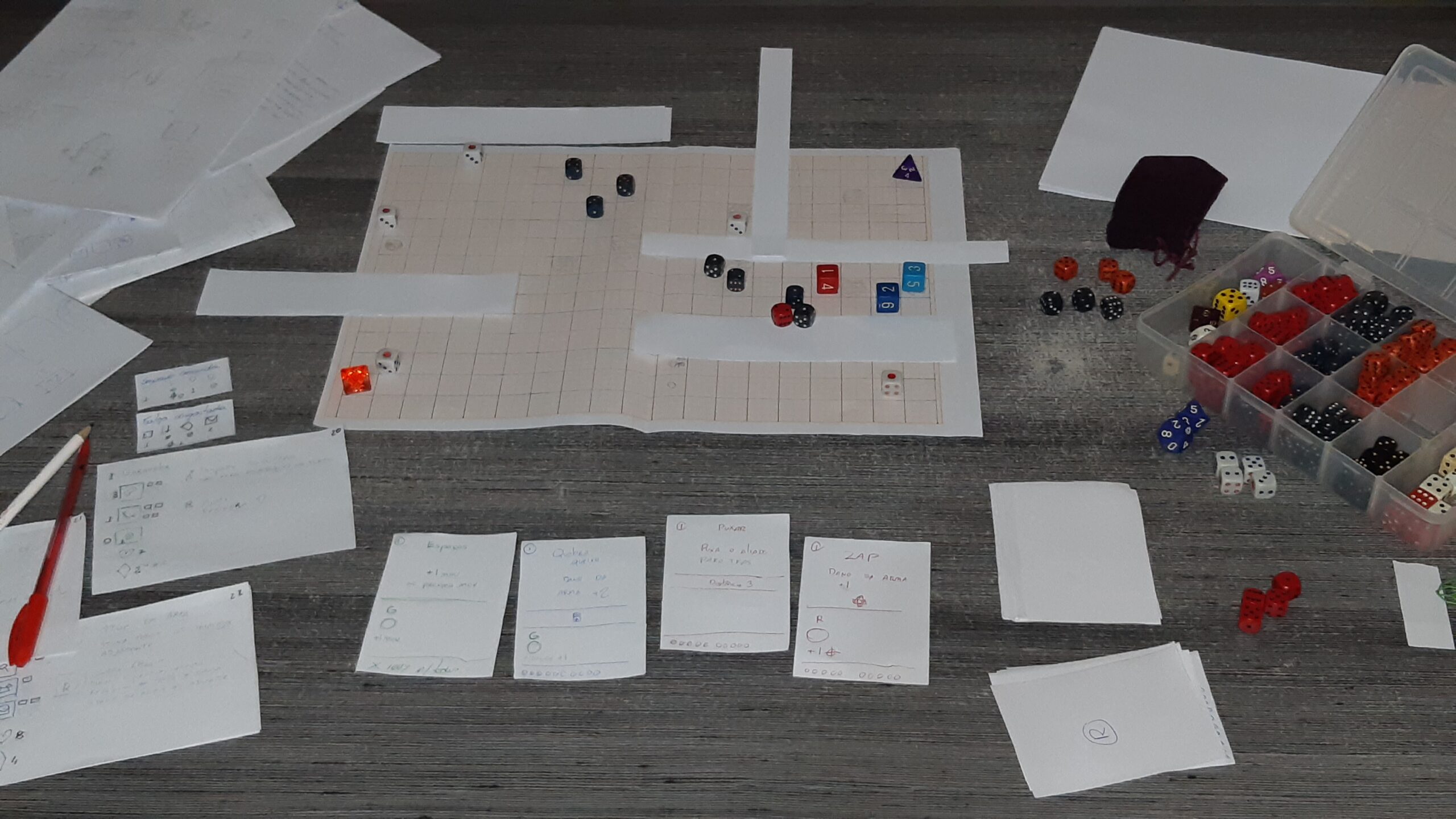The game Espada is an exclusively digital project. It features tactical, turn-based gameplay in which the player uses cards to perform actions and progress through the adventure.
Game mechanics are essential—especially in Espada, where everything the player can do is directly tied to them. That’s why our first step was to test what had been developed so far. However, we couldn’t run any tests at that point because there was nothing concrete programmed yet—only design concepts and artwork.
The project has a deadline and limited resources, so we chose to carry out a general test in a much simpler and faster way. This approach would still allow us to visualize the mechanics and elements, helping us validate whether we’re on the right track.
We decided to create a board game-style test, as the tactical mechanics we want to explore fit well in this format. This kind of early testing is very important and helps validate many aspects of what we plan to include in the game.
And this doesn’t apply just to our case—initial testing on paper, whether as a board game, RPG, or any other form, is an excellent way to ensure that the idea is heading in an interesting direction. In general, there’s no need to worry about polish at this stage; using whatever is sufficient for testing—imagination, paper, pencils, markers, or dice—is more than enough! The goal is to test as much as possible for now, even if it means simplifying some mechanics to make them easier to reproduce manually.
After a few meetings, we were able to test many of the elements we wanted. The results were very interesting for the team—we were able to identify issues we hadn’t noticed before regarding the use of cards as actions. Overall, we validated that the game works and has genuinely fun aspects, especially when considering the possible synergies. Some details were a bit vague, raising questions such as whether or not certain mechanics should be removed, since they didn’t provide a clear positive or negative impact. Unfortunately, there were certain features we weren’t able to test effectively in a board game format. However, these are simpler elements, and we believe they won’t be a problem during the programming phase. They will be tested later on, and then we’ll decide whether to keep them or not.
The entire project will continue to undergo testing, even if only within the team, because it’s crucial to ensure that the path we’ve chosen is as solid as possible. There’s no way to guarantee with absolute certainty that the game’s concept and mechanics are excellent, so we aim to reach at least a satisfying level. True certainty will only come once players can experience Espada in an immersive and fun way!
